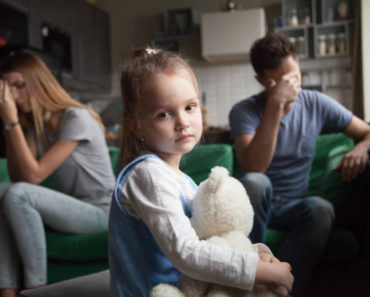Contents
- 1 1. Navigating the Path to Healing: Overcoming Relationship Trauma for Mental Health Restoration
- 2 Understanding Relationship Trauma
- 2.1 How can I cope with the emotional pain and triggers associated with past relationship trauma?
- 2.2 What are some effective strategies for rebuilding trust and establishing healthy boundaries after experiencing relationship trauma?
- 2.3 Are there any therapeutic techniques or self-help resources specifically designed to help individuals heal from relationship trauma?
- 2.4 Related Posts

In our latest article, we delve into the crucial topic of healing from relationship trauma. Discover effective strategies, coping mechanisms, and expert advice to reclaim your mental well-being and foster healthier relationships. Join us on this journey as we provide the tools you need for healing and growth.
Here’s the response:
Navigating the Path to Healing: Overcoming Relationship Trauma for Mental Health Restoration
Relationship trauma can have a profound impact on our mental health. The effects of abusive or toxic relationships can linger long after the relationship has ended, causing emotional distress and compromising our overall well-being. However, there is hope. With the right tools and support, it is possible to overcome relationship trauma and restore our mental health.
Recognizing the Signs: The first step in healing from relationship trauma is acknowledging its presence. It is essential to identify the signs and symptoms of trauma, such as anxiety, depression, fear, and low self-esteem. Seeking professional help from therapists or counselors who specialize in trauma can provide guidance and validation during this process.
Understanding the Impact: Relationship trauma can significantly impact our perception of ourselves and others. It can erode our trust, increase our vulnerability to future harm, and create negative patterns in our relationships. By understanding the impact of trauma, we can begin to challenge and change these patterns.
Building Resilience: Developing resilience is crucial in overcoming relationship trauma. This involves learning healthy coping mechanisms, setting boundaries, and practicing self-care. Engaging in activities that promote emotional well-being, such as therapy, meditation, and exercise, can help build resilience and support mental health restoration.
Finding Support: Healing from relationship trauma can be a challenging journey, but it’s important not to navigate it alone. Connecting with support networks, such as support groups or online communities, can provide a safe space to share experiences, gain insights, and receive support from others who have gone through similar struggles.
Reframing the Narrative: Changing the narrative around relationship trauma is an essential part of the healing process. Instead of viewing ourselves as victims, we can reframe our experiences to empower ourselves as survivors. This shift in perspective can help rebuild self-esteem and promote mental well-being.
Seeking Professional Help: Healing from relationship trauma may require professional assistance. Therapists or counselors trained in trauma-focused therapies, such as cognitive-behavioral therapy (CBT) or eye movement desensitization and reprocessing (EMDR), can provide tailored interventions to address the specific impact of relationship trauma on mental health.
The Path to Restoration: Overcoming relationship trauma is a journey that requires patience, self-compassion, and perseverance. With time and dedication, it is possible to restore mental health and reclaim a sense of well-being. Remember, healing is a personal process, and everyone’s journey is unique.
By acknowledging the impact of relationship trauma, seeking support, building resilience, reframing the narrative, and seeking professional help when needed, individuals can navigate the path to healing and restore their mental health.
Remember, you are not alone on this journey. Reach out for support and know that healing is possible.
Understanding Relationship Trauma
Relationship trauma can have a lasting impact on mental health. This section aims to provide a comprehensive understanding of relationship trauma, its causes, and its effects on individuals’ well-being.
Causes of Relationship Trauma: Relationship trauma can stem from various sources, including abusive relationships, childhood neglect or abuse, betrayal, or a series of unhealthy relationships. It often involves experiencing emotional, psychological, or physical harm within the context of a relationship.
Effects of Relationship Trauma: Relationship trauma can deeply affect an individual’s mental health and overall well-being. It may lead to trust issues, difficulty forming new relationships, anxiety, depression, emotional dysregulation, low self-esteem, and a distorted sense of self. It is crucial to acknowledge these effects and seek appropriate support.
Healing from Relationship Trauma: Healing from relationship trauma is a journey that requires patience and self-compassion. It involves acknowledging the trauma, seeking therapy or counseling, establishing boundaries, practicing self-care, engaging in healthy coping mechanisms, and building a supportive network. Healing is a gradual process, but with time and effort, it is possible to regain a sense of security, trust, and emotional well-being.
Remember, everyone’s healing journey is unique, and professional help can be instrumental in navigating the complexities of relationship trauma.
How can I cope with the emotional pain and triggers associated with past relationship trauma?
Coping with emotional pain and triggers associated with past relationship trauma can be challenging, but there are strategies you can use to help navigate and heal from this experience. Here are some suggestions:
1. Practice self-care: Engage in activities that promote your overall well-being, such as exercise, healthy eating, getting enough sleep, and engaging in hobbies or interests that bring you joy.
2. Seek support: Reach out to trusted friends, family members, or a mental health professional who can provide a listening ear and guidance during this difficult time. Support groups can also be beneficial as they allow for connection with others who have experienced similar situations.
3. Allow yourself to grieve: It is normal to feel a range of emotions after relationship trauma. Allow yourself to acknowledge and process these feelings. Journaling, art therapy, or mindfulness practices can help with this process.
4. Set boundaries: Establish clear boundaries to protect yourself from potential triggers. This may include limiting contact with the person involved in the trauma or avoiding certain places or situations that remind you of the past.
5. Challenge negative thoughts: Be mindful of any negative self-talk that may be perpetuating your emotional pain. Counter these thoughts with more compassionate and realistic perspectives.
6. Develop healthy coping mechanisms: Explore healthy ways to cope with your emotions, such as deep breathing exercises, meditation, or engaging in activities that promote relaxation and stress reduction.
7. Consider therapy: Working with a therapist can help you process your emotions, develop healthy coping skills, and work through any lingering trauma from past relationships.
Remember that healing takes time, so be patient with yourself throughout this process. If you find yourself struggling to manage your emotions or if they begin to interfere with your daily life, it’s important to seek professional help.
What are some effective strategies for rebuilding trust and establishing healthy boundaries after experiencing relationship trauma?
Rebuilding trust and establishing healthy boundaries after experiencing relationship trauma can be a challenging and gradual process, but it is possible with the right strategies. Here are some effective approaches to consider:
1. Seeking therapy: Professional help from a qualified therapist who specializes in trauma and relationships can provide guidance and support throughout the healing journey. They can help you explore the impact of the trauma, learn coping skills, and develop healthier ways of relating to others.
2. Self-care and self-compassion: Prioritize your well-being by engaging in activities that promote self-care. This can include exercise, mindfulness practices, journaling, or participating in hobbies that bring you joy. Practice self-compassion by acknowledging and validating your feelings and giving yourself permission to heal at your own pace.
3. Setting boundaries: Clearly defining and communicating your boundaries is essential for rebuilding trust and ensuring your safety. Identify what you are comfortable with and establish clear boundaries with others. It’s important to remember that boundaries are not all-or-nothing; they can be adjusted as you progress along your healing journey.
4. Building a support network: Surround yourself with a supportive network of friends, family, or support groups who understand and validate your experiences. Having a community that you can rely on provides an additional layer of support and understanding.
5. Educating yourself: Take the time to educate yourself about trauma, its effects on relationships, and healthy communication strategies. Understanding the impact of trauma can help you make sense of your experiences, identify triggers, and develop effective coping mechanisms.
6. Patience and persistence: Recovery takes time, and healing may come with setbacks along the way. Be patient with yourself, acknowledging that healing is a process. Embrace small victories and celebrate the progress you make, no matter how small.
Remember, healing from relationship trauma is a unique journey for each individual. It’s important to seek professional help and customize these strategies to your specific needs and circumstances.
Are there any therapeutic techniques or self-help resources specifically designed to help individuals heal from relationship trauma?
Yes, there are several therapeutic techniques and self-help resources available to help individuals heal from relationship trauma.
1. Eye Movement Desensitization and Reprocessing (EMDR): This therapy technique helps process traumatic experiences by using bilateral stimulation, such as eye movements or tapping, to reduce distressing symptoms and promote healing.
2. Cognitive Behavioral Therapy (CBT): CBT helps individuals identify and challenge negative thought patterns and behaviors related to their past relationship trauma. It focuses on changing unhelpful beliefs and developing healthy coping mechanisms.
3. Schema Therapy: This approach targets deep-rooted, maladaptive patterns developed during childhood that continue to affect relationships in adulthood. Schema therapy helps individuals understand and modify these patterns to improve their overall well-being.
4. Inner Child Work: This therapeutic technique involves reconnecting with the wounded inner child and providing it with nurturing, support, and healing. It helps individuals address unresolved emotional issues stemming from past relationship trauma.
5. Mindfulness and Meditation: Practicing mindfulness and meditation can aid in reducing stress, promoting emotional regulation, and enhancing overall well-being. These practices also help individuals develop self-compassion and cultivate healthier relationships.
6. Support Groups: Participating in support groups specifically designed for individuals healing from relationship trauma can be highly beneficial. These groups provide a safe space for sharing experiences, receiving empathy, and gaining insights from others in similar situations.
7. Self-Help Books and Resources: There are numerous self-help books, workbooks, and online resources tailored to addressing relationship trauma. Examples include “The Body Keeps the Score” by Bessel van der Kolk and “Complex PTSD: From Surviving to Thriving” by Pete Walker.
Remember, it’s essential to consult with a qualified mental health professional who can provide personalized guidance and support throughout the healing process.
In conclusion, healing from relationship trauma is a complex and individual journey. It requires self-awareness, self-compassion, and a commitment to growth. Remember, healing takes time and consistent effort. It’s essential to seek professional help if needed, as therapists can provide guidance and support throughout the process. Additionally, surrounding yourself with a strong support system of understanding friends and loved ones can greatly facilitate the healing process. By acknowledging the trauma, practicing self-care, and implementing healthy boundaries, it is possible to heal and move towards healthier relationships in the future. Remember, your mental health is valuable, and prioritizing your well-being is essential for a fulfilling life.







